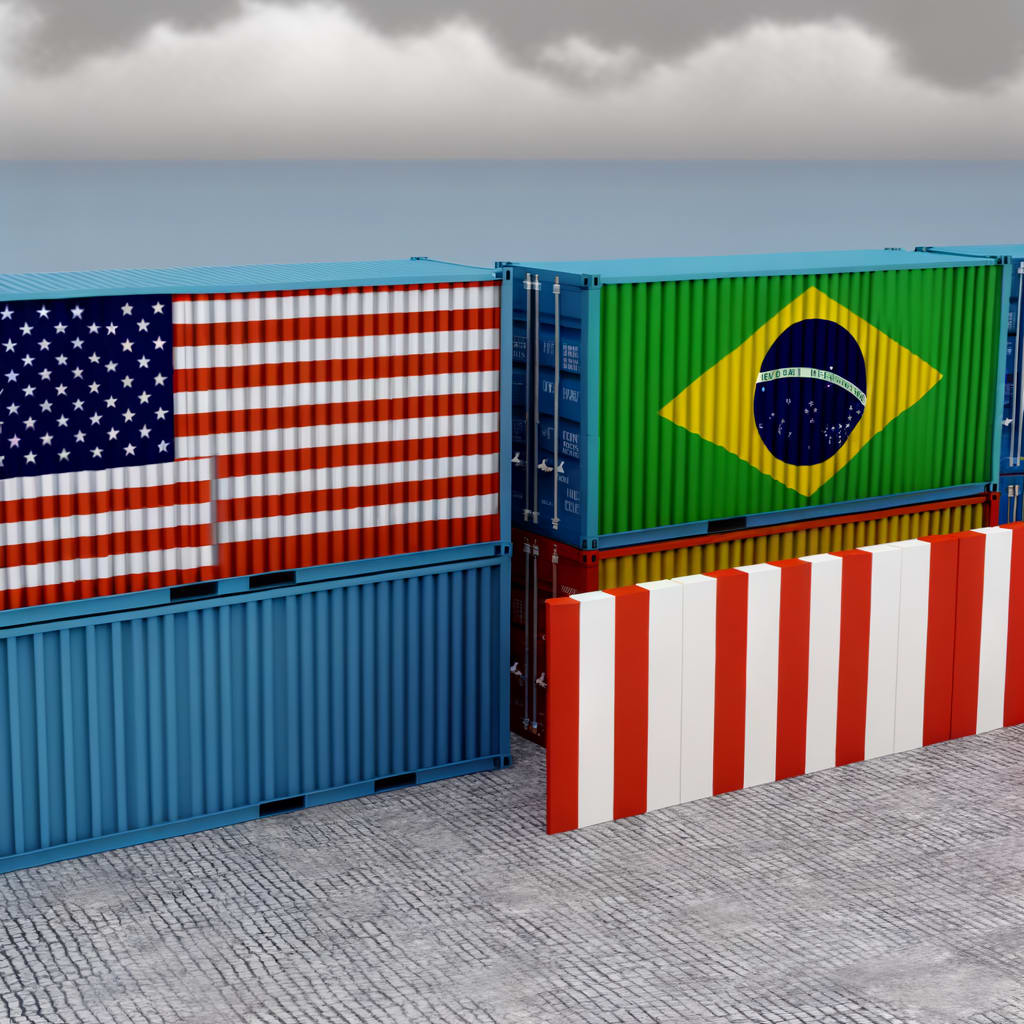US Slaps Brazil with 50% Tariffs, Sparks Trade Showdown
In an escalating trade showdown, US President Donald Trump has enforced a 50% tariff on all goods from Brazil effective from August 1. The move is seen as a retaliation against the legal proceedings against former Brazilian President Jair Bolsonaro and has been met with firm resistance from Brazil, sparking concerns of a potential tariff war.
Background and Context
The tariff imposition comes amid purported lack of high-level communication between the White House and the Brazilian government, led by President Luiz Inácio Lula da Silva. The Brazilian government had been attempting to intensify dialogue with American authorities to avoid or postpone the tariffs, with little success.
The 50% tariffs were announced by Trump on August 1, partly in response to the supposed political witch-hunt
against his far-right ally Bolsonaro. The former Brazilian President faces charges for allegedly plotting a military coup to prevent Lula from assuming office after the 2022 presidential elections.
Key Developments
Despite the lack of engagement from the White House, the Brazilian government continues to press for contacts with the Trump administration in an attempt to reach an agreement that averts the tariffs. However, they have maintained a firm stance on political matters, refusing to make concessions related to the legal issue of Bolsonaro or any other judiciary decision.
In an executive order, Trump accused Brazil of serious human rights abuses
and contributing to the deliberate breakdown in the rule of law,
particularly targeting the prosecution of Bolsonaro. The order adds a 40% surtax to the existing 10% tariff already being levied by the US.
This move has sparked a strong reaction from Brazil, with President Lula stating that he does not fear antagonizing Trump. He also expressed plans to strengthen ties with fellow BRICS nations, despite warnings from the US.
Reactions and Implications
The imposition of these tariffs has elicited responses from various quarters. The Consumer Brands Association, representing companies such as Coca-Cola, PepsiCo, Nestlé, and Kellog, has urged the Trump administration to negotiate the tariffs or face repercussions for American consumers.
Conversely, global markets have shown remarkable composure in the face of these tariff threats. Sectors exempt from the tariffs have expressed intent to resume trade with the US, while taxed sectors have spoken of potential disaster.
Josué Gomes da Silva, President of Fiesp (Federation of Industries of the State of São Paulo), expressed optimism about the possibility of an agreement between the two governments that would prevent a tariff war.
Current Status
Despite the optimism from some quarters, the situation remains tense, with around 60% of Brazilian product exports to the US set to be subject to the tariffs. States most affected by the new tariff policy, including Minas Gerais, Rio Grande do Sul, Rio de Janeiro, and Paraná, are still assessing the impact and have announced support policies for the main local sectors affected by the new taxes.
Negotiations remain ongoing, but as things stand, the trade relationship between the United States and Brazil is in a state of emergency, with the potential for significant economic impact on both nations.

